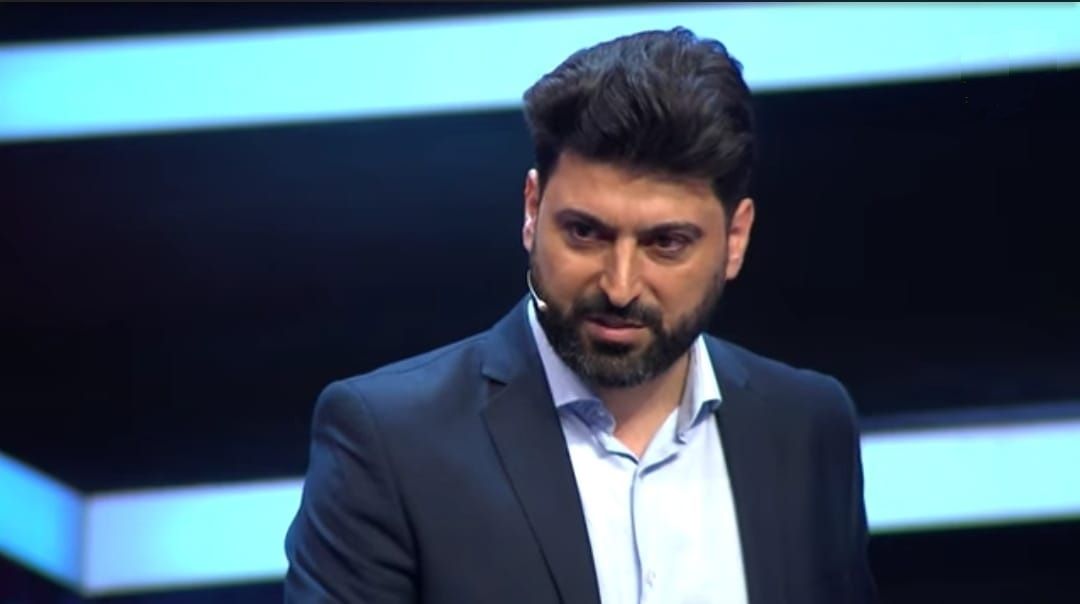|
|
TODAY.AZ / Business
Anaklia port to bring very positive economic impact on region
11 October 2023 [16:10] - TODAY.AZ
 By Azernews
By Azernews Middle Corridor, playing out from the Far East to Europe, is an important and promising mega project that will shape the future of the region. The current geopolitical situation ramped up the significance of the Corridor. China and many European countries are keen on increasing the load capacity and speed of the corridor. Fortunately, the South Caucasus is situated in the heart of the corridor, and Azerbaijan and Georgia are irreplaceable parts of this transport segment.
The two Caucasian fraternal countries do their best to complete all infrastructure works located on the corridor to increase the load capacity and speed. The issue was one of the main topics on the agenda of Azerbaijani President Ilham Aliyev’s visit to Tbilisi. The construction of the Anaklia deep-water port, the completion of the East-West road, and other issues were voiced in the press conference within the framework of the visit.

Speaking to Azernews on the issue, expert on transport issues Rauf Agamirzayev said that the construction of the port of Anaklia as a deep-water port on the Eastern Coast of the Black Sea was planned even during the time of the Soviet Union, and then it was actively put on the agenda during the years of independence. He stressed that the construction of this port could have a very positive economic impact on the region as a whole.
“Because this deep water port will bring new opportunities. The annual turnover of the port alone is 80-100 million tons, and it is planned to handle up to one million containers. It means berthing of Panamax-type ships (which can carry 10,000 containers at the same time), which in turn will increase the attractiveness of the corridor. However, blocking the construction of the port has had political aspects. However, the construction of this port was tabled once again in a complicated period. Because Russia is under sanctions and traditional roads are blocked, alternative roads and the elimination of bottlenecks on these roads are on the agenda. The port construction budget should be equal to $2.5bn. Probably, not only Georgia but also its partners can participate in this construction. There are countries such as Azerbaijan, Kazakhstan, the UAE, China, etc., which are interested in the construction of this port. Georgia should make a choice so that investors can actively participate in it,” he noted.
Rauf Agamirzayev told that Azerbaijan has a port, Kulevi terminal, on the Black Sea. The terminal is the final point of the Baku-Supsa pipeline. He noted that its expansion project is also tabled because Kazakhstan wants to diversify oil export through Azerbaijan's pipeline system to the Black Sea and the Mediterranean Sea.
“Kazakhstan's main export pipeline is a pipeline from the CPC (Caspian Pipeline Consortioum) that stretched from Tengiz field in the north of the Caspian Sea to Novorossiysk. They expressed their desire to diversify it. For this, additional work should be done in order to use the existing infrastructural means that we already have, as well as to increase the volume in the future. Construction of oil terminals in ports in Kazakhstan and expansion of existing terminals in Azerbaijan are on the agenda,” Raul Agamirzayev said.
The transport pundit touched on the highways and railways and pointed out that most of the East-West highway has already been built and upgraded to four lanes. In Azerbaijan, a part of the last 27 km is left in the Gazakh district. However, on the Georgian side, there are more works in comparison with Azerbaijan. He underlined that it is likely that the handover will be completed by the end of next year with the completion of many parts and completion in 2025.
“Meanwhile, reconstruction works on the Azerbaijan railway segment have been completed. Electric current has been finished from Ujar to Beyuk Kesik and continues from Ujar to Baku. As for Georgia, the modernization of the railways has been carried out since 2012 and will be completed in 2024. It is worth noting the modernization of railways will double the capacity for transporting goods. The modernization project involves the construction of six tunnels, including the longest in the South Caucasus, the Kvisheti-Zvare tunnel with a length of more than 8 km,” R. Agamirzayev added.
URL: http://www.today.az/news/business/239977.html
 Print version
Print version
Connect with us. Get latest news and updates.
See Also
- 03 January 2025 [15:19]
New gas tariffs begin implementation in Azerbaijan - 03 January 2025 [13:41]
Azeri Light oil price sees increase - 02 January 2025 [16:30]
Azerbaijan sees increase in gypsum and anhydrite production in 2024 - 02 January 2025 [15:25]
Azerbaijan Technical University to prepare urban mobility plan of Agsu - 02 January 2025 [13:15]
Nakhchivan signs contract for purchase of 2024 model cars - 02 January 2025 [11:05]
McDonald's Azerbaijan plans to expand network to 50 restaurants - 30 December 2024 [16:34]
AzerGold's export revenues increased by more than 41 percent - 30 December 2024 [15:52]
Azerbaijan Finance Ministry prepares "Citizen's Budget Guide" - 30 December 2024 [15:17]
ADY to operate in enhanced work regime - 30 December 2024 [12:37]
Oil prices increased in global markets
Most Popular
 Azerbaijan's State Water Resources Agency to rebuild key canal in Nakhchivan
Azerbaijan's State Water Resources Agency to rebuild key canal in Nakhchivan
 President Ilham Aliyev expresses condolences to President of Montenegro
President Ilham Aliyev expresses condolences to President of Montenegro
 Tehran’s Anti-Azerbaijani Rhetoric Undermines Diplomatic Intentions
Tehran’s Anti-Azerbaijani Rhetoric Undermines Diplomatic Intentions
 China's operating high-speed railway to hit 60,000 km by 2030
China's operating high-speed railway to hit 60,000 km by 2030
 McDonald's Azerbaijan plans to expand network to 50 restaurants
McDonald's Azerbaijan plans to expand network to 50 restaurants
 Azerbaijan’s MFA extends condolences to Montenegro
Azerbaijan’s MFA extends condolences to Montenegro
 Today is birthday of Azerbaijani National Hero Polad Hashimov
Today is birthday of Azerbaijani National Hero Polad Hashimov
